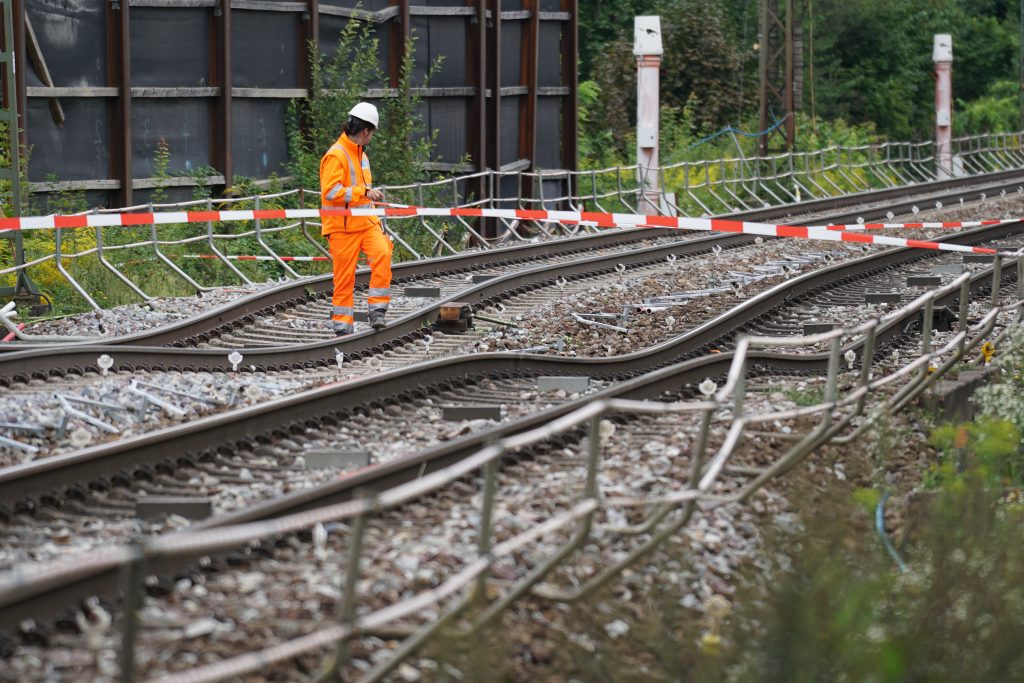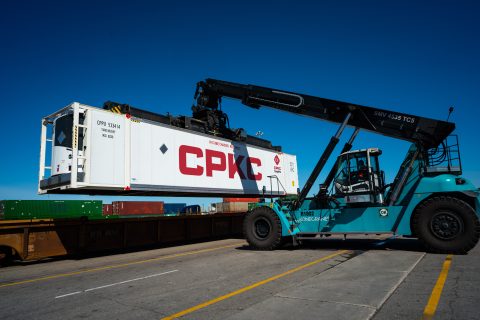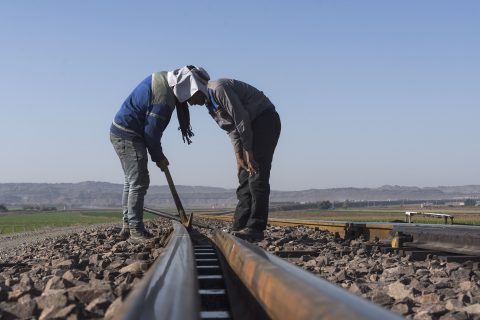Rail freight loses millions due to Rastatt land slip on Karlsruhe-Basel corridor

A disruption in railway services on the route between Basel and Karlsruhe has caused a major standstill of rail freight transport between western Europe and Italy. Many freight trains have stranded, resulting in losses running into millions of Euros, according to Dutch industry lobby organisations. The route is used by an average of 200 freight trains a day, making it one of the main north-south corridors of Europe.
The disruption was caused by a land slip at the construction site of the new 4.27 kilometer tunnel being built at Rastatt. The movement destabilised the construction site and the existing railway. At this point it is unclear when services will resume. Initially, a deadline of 26 August was announced but this has already been postponed to somewhere in September, said Hans-Willem Vroon of RailGood, a Dutch railway lobbyist.
Major disaster
In a joint effort with the Royal Dutch Transport Federation (KNV) and the Port of Rotterdam, the lobbyist referred to the standstill as a major disaster for which no emergency plan is available. This is partly caused by the fact that alternative lines are also unavailable at the moment.
The usual detour routes through Germany cannot be used because of ongoing construction work. On the busy railway lines via Austria to Italy residual capacity for rerouting the freight is scarce, apart from the substantially longer transit times on the intensively utilised corridor.
Apart from this, the alternatives offered are just not realistic, Vroon explained. “In order to use tracks in other countries, different locomotives may be required. The route must be suitable to the load in size and weight and the locomotive driver must know the route in order to guarantee safety.”
Damage
In other cases, the detour is just too long. Depending on the type of shipment, this can cause further damage to the operation, Vroon continues. “Think of spoiled food items, claims of companies receiving a late shipment etc. Sea routes are not an option either, it takes many days up to a week to transfer the shipment to a vessel and get to the destination.”
The Dutch lobby organisation represents operators with around 124 mostly intermodal trains on this corridor per day and estimates their financial damage to be 5 million Euros per week, excluding indirect consequences such as damage claims or reputation damage. “On top of this, the rail freight sector risks a loss of business because customers may prefer other options such as road freight, or because locomotives are temporarily not available.”
Call for action
“We are greatly concerned about a qualitative and competitive guarantee of the accessibility of the European hinterland by rail for the Port of Rotterdam and the Netherlands as a whole. A long-term interruption is not an option, especially as the sector has witnessed unavailability of the railway network in the Netherlands (Moerdijk Bridge and Caland Bridge) and Italy (Luino) this year”, the Dutch parties say in the joint statement.
They call for an immediate plan of action and proper communication, as well as a lesson learnt for the future. “This asks for a fundamental improvement of international cooperation when it comes to construction work of the railway network, as well as the availability of a good emergency plan. It is upon the European Rail Freight Corridors to take this further.”
You just read one of our premium articles free of charge
Want full access? Take advantage of our exclusive offer






